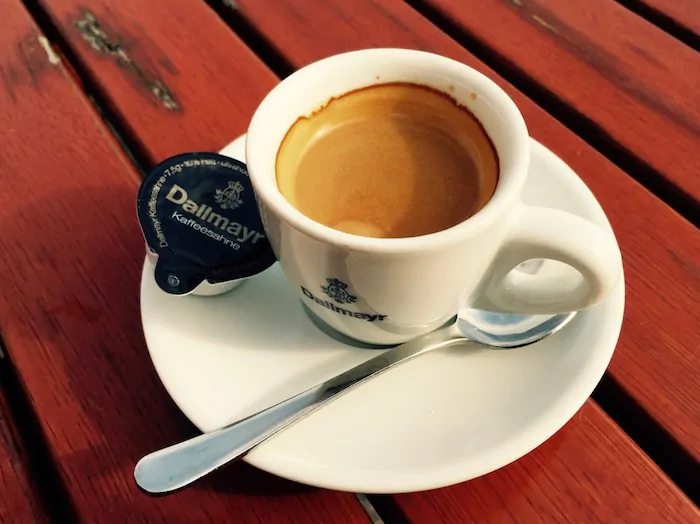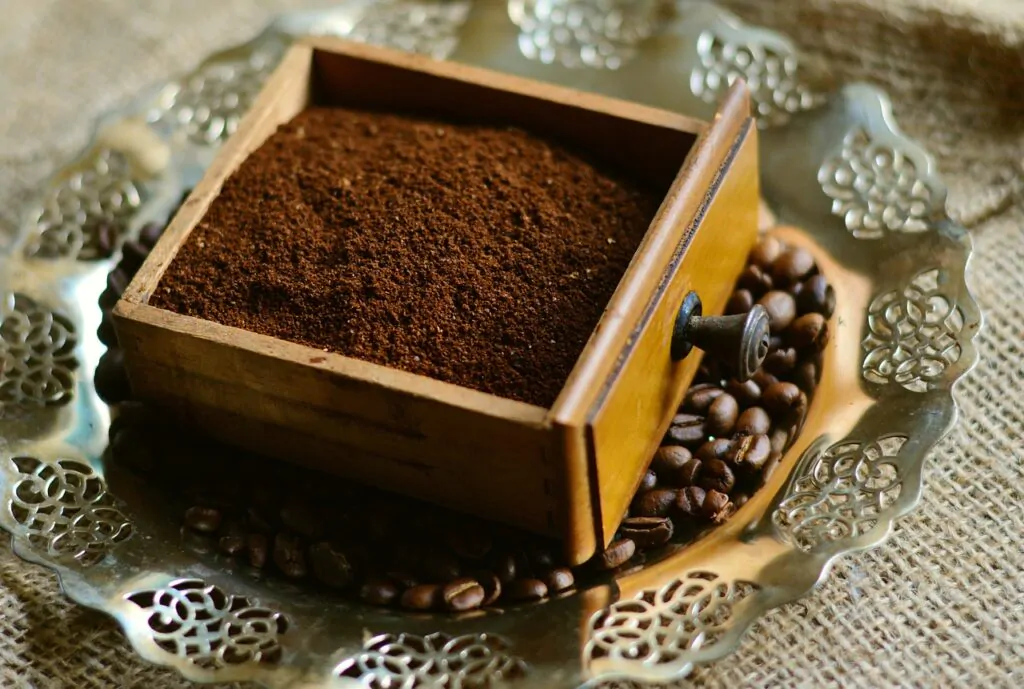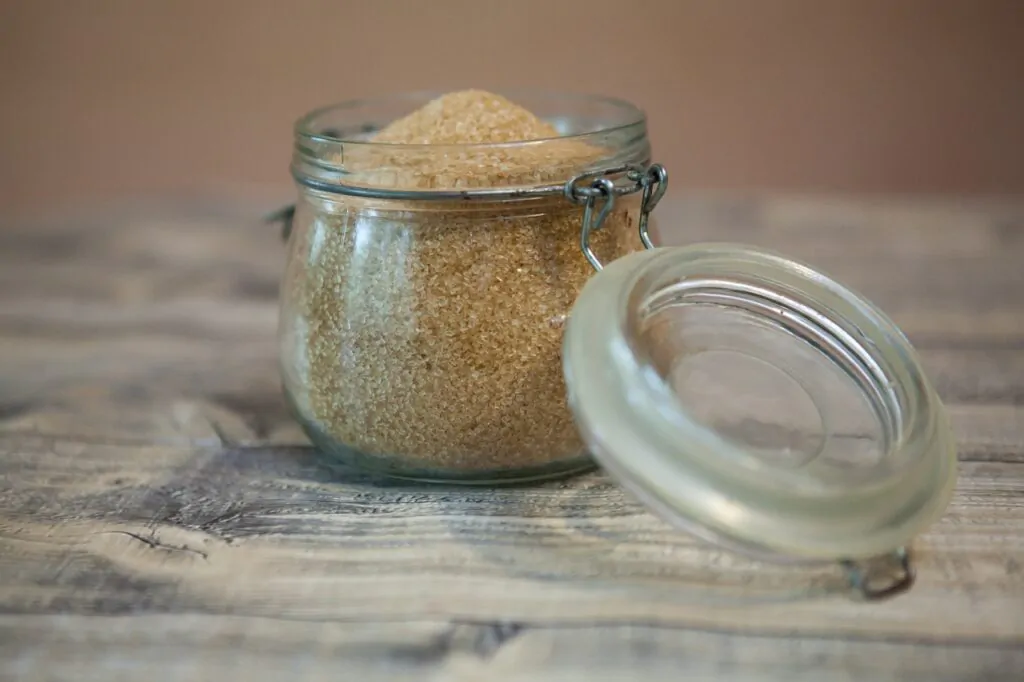Ever wondered why the espresso in coffee shops tastes bitter at times. Is espresso supposed to be bitter or is it just your bad day?

If I am in a coffee shop, my go-to order is always an espresso. But, sometimes my favorite drink has me cringing my face due to the intense bitterness that leaves a bad aftertaste in my mouth. I am sure you can relate to that experience if you have at any time ordered an espresso that tasted bitter, sour, or burnt.
So, is espresso supposed to be bitter? No. If your espresso leaves a bitter and unpleasant taste in your mouth, it is probably not made correctly. The brew is over-extracted.
Even the slightest change in water-to-grounds ratio, water temperature, and extraction time can alter the taste and flavor of your espresso, making it taste bitter. When done correctly, espresso extracts the most delicate flavors of the 800 to 1000 aromatic compounds that make up the taste profile of roasted coffee beans.
Good espresso should taste like dark chocolate and leave a delicious caramel-like taste in your mouth. It should not taste bitter at all.
Why Does Espresso Taste Bitter Then?
The taste turns bitter when the naturally occurring tannic acid leaches into the brew due to several reasons. Making a perfect cup of espresso is an art and several factors need to align to get that perfect shot. At times, some of these factors may be overlooked in busy cafes by inexperienced baristas, thus lending a bitter taste to the brew.
Over-extraction of coffee grounds

While the bitter taste may be caused by several factors, I believe the common reason is the over-extracting of coffee grounds. If you allow the brewing process to last longer than 20–25 seconds, this stimulates the beans to leach tannic acid into the brew. This acid acts as a plant polyphenol to protect the coffee beans against insect attacks.
Stale coffee beans
To make a cup of good espresso, you need 7-8 grams of freshly ground coffee roasted about 5-7 days in advance. Beans roasted 3 weeks ago tend to get stale and give a bitter taste to the coffee. I would also not recommend using beans that were roasted a day before or the same day because the roasted beans need to de-gas to release the rich flavors.
Water temperature
If the water is not hot enough, it will lead to the under-extraction of flavors. Ideally, the temperature should not be higher than 200 degrees F or else you will get a burnt taste in your espresso. I recommend a temperature close to 195 F to extract the finest aromatic components of the coffee grounds.
Related Article: What Is The Best Temperature To Brew Coffee?
Grind texture
The consistency or texture of the grind also plays a fundamental role in determining the espresso flavor. If you grind the beans too fine, this will result in burnt coffee, which many people describe as a bitter taste. A coarse grind, on the other hand, will not be able to maintain the perfect resistance needed to extract the coffee oils.
The ideal grind texture for espresso is medium (more on the finer side) and the extraction time should be around 20-25 seconds.
How To Fix A Bitter Expresso
I would suggest that you use Arabica coffee beans for making espresso at home as they tend to be less bitter. Also, clean your espresso machine regularly because a dirty brewer can give you a bitter taste.
Adjust the brew time to keep it between 20-25 seconds and keep a watch on coffee pouring out. Stop the shot when it turns blonde as this part contains primarily caffeine that can add a bitter taste to your espresso.
What if you already have a bitter espresso in your coffee mug? Here are some quick and interesting ways to fix it.
Salt
Adding a dash of salt to your espresso can enhance the flavor and counterbalance the bitter taste. Table salt is primarily a chemical compound called sodium chloride, it helps in making the sodium content in the coffee stand out more prominently. It does not interfere with the underlying flavors of the coffee or make your brew taste salty.
You may add a dash of salt over freshly brewed espresso to balance out the bitterness.
Cream or Milk
Another easy and quick fix for a bitter espresso is to add cream or milk to it. I know some people who prefer enjoying their coffee with milk and they rarely complain about bitterness because the milk balances the flavor.
If your black espresso feels bitter, a good option would be to add a dollop of fresh cream or milk as per your liking. The fat content will not only enhance the flavor but also neutralize the taste.
Pro tip – Add a little cream/ milk at first, take a sip and add more if needed.
# Sugar
If you don’t mind adding sugar once in a while in your coffee, you may try this option to remedy the bitterness. You may use white or brown sugar to make your espresso less bitter.

Cane sugar is a healthier option as it has fewer additives. Just one teaspoon may be enough to make your brew taste good.
Difference Between Coffee And Espresso
I know this may sound a little weird to someone who’s new to coffee making. Both are coffee, after all, so why the difference? Well, I would like to explain it this way – all espressos are coffee, but not all types of coffee can be called espresso!
Let’s dig a little further into the differences.
- Origin: Both coffee and espresso technically come from the same Robusta and Arabica beans, but the difference lies in the method of preparation. The beans designated for espresso are carefully selected and they are roasted for a longer time than the beans used for making drip coffee.
- Grind: For espresso, coffee beans are ground into a finer consistency like that of sand. The grounds are tamped to get a good pack for a quality espresso shot. Drip coffee, on the other hand, requires medium to coarse ground so that it doesn’t pass through the filter.
- Process: An espresso is a more concentrated form of coffee, as a result, it tastes more bitter than standard brewed coffee. However, the bitterness also depends upon the way the beans are roasted, the extraction time, water temperatures, etc.
- Caffeine Content: Contrary to the common myth, espresso does not contain more caffeine than coffee. A typical 8oz cup of coffee has about 85-185 mg of caffeine while a shot of espresso contains only 40-75.
- Flavor: Espresso has a roasty, bolder, and full-bodied flavor that is stronger than the taste of average coffee. Some espresso- aficionados insist that the filter used in brewing drip coffee absorbs some of the flavors, resulting in the difference in taste.
- Brewing method: Another interesting difference lies in the brewing process. While there are several methods to brew regular coffee – drip method, percolated, French Press, etc; espresso can only be made using an espresso machine. If you are interested in using different ways to make coffee at home, you can have a look at my previous article for more tips.
Why Is My Espresso Sour?
Your espresso may taste sour if it is made from beans that are freshly roasted because they haven’t had the time to mature (also known as de-gassing). Make sure you use coffee beans that were roasted a week before to ensure that they have settled in.
When making espresso, make sure you keep an eye on the brewing time. If the espresso rushes quickly within 15 seconds and looks pale yellow and bubbly, chances are it will taste sour. The puck will be powdery and dry.
This means the water ran through the coffee grounds too quickly without properly extracting the delicious oils, hence your coffee tastes sour.
A quick fix would be to adjust the grind to ensure that it is fine enough to create more resistance for water to pass through. This will give you a full-bodied and delicious espresso.
More ways to make coffee less acid: Here
FAQs
What does crema say about your espresso?
If you have a lot of crema, there’ll be less espresso in your cup. If the crema drops after one minute, the brew was probably under-extracted or the coffee beans were too light. Proper extraction for a good quality espresso usually takes 20-30 seconds.
Anything less or more than that would result in a sour or bitter-tasting brew.
How much coffee grounds do you need for espresso?
Your brew tastes best when you use freshly ground coffee beans so grind only as much needed. You may use 6-8 grams of grounds per 1-1.5 fluid oz for the single shot, and 15 grams of espresso per 2 fluid oz for a double shot.
When does the espresso taste burnt?
Your brew may taste burnt if you get only a small volume of liquid coffee even after 45 seconds of extraction. In this case, the grounds puck will look soggy and sloppy. To fix this you must set your grinder to make a coarser grind to allow water to flow through the tamp easily without overcooking the grounds.
Is Espresso Supposed To Be Bitter: The Final Words
There is always a thin line between good and bad espresso, and you need to identify that line and stay within it to get your brew right every time. While a good espresso should not taste bitter, it is slightly more concentrated than drip coffee.
If you own a home espresso machine, make sure you clean it regularly, always buy freshly roasted coffee beans, make a fine grind (not too fine), and tamp it well. Instead of cringing your face after a sip, you should have a heavenly caramel taste in your palate that you will want to retain for as long as possible!

